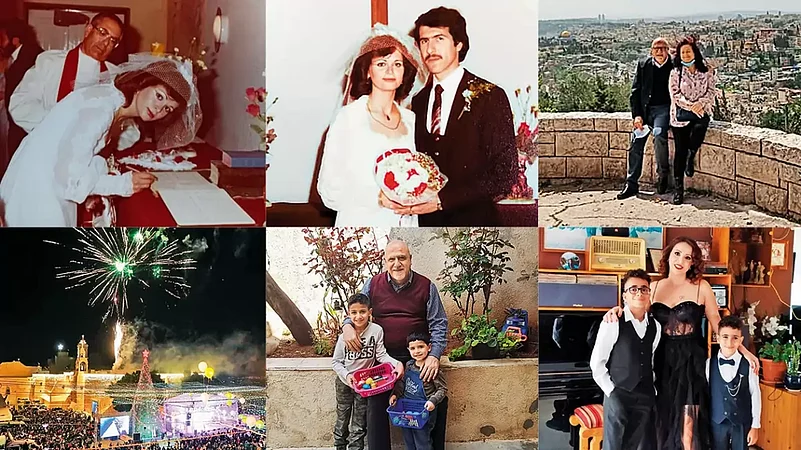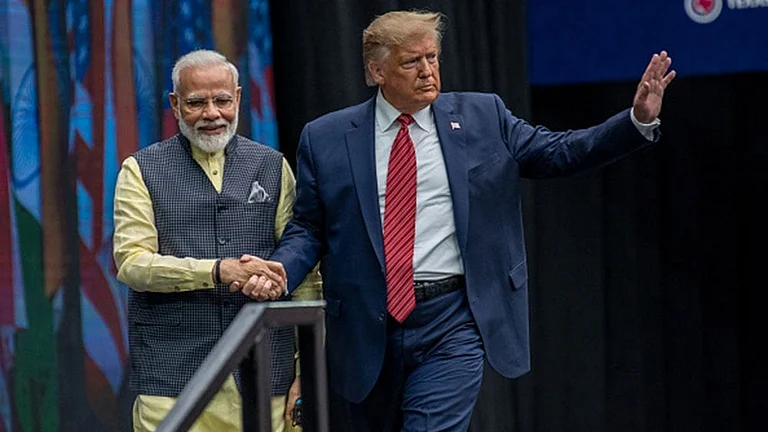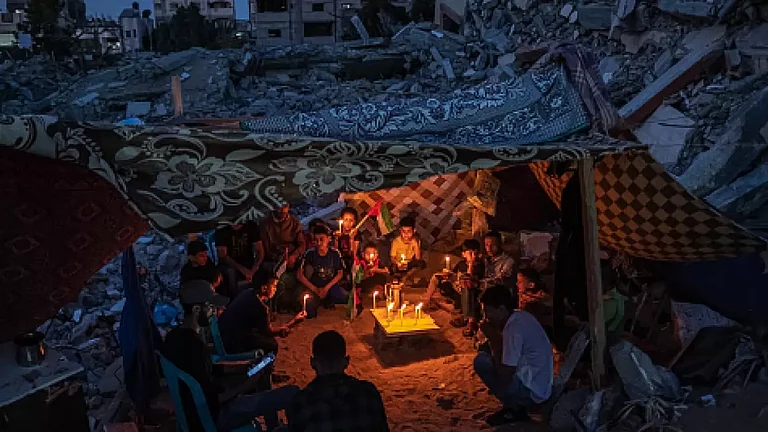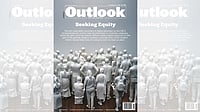December 22: Christmas is approaching. It is a time for cheer and joy and togetherness. In Jerusalem and Bethlehem, it’s a day that is well celebrated. But in the West Bank, there is no yuletide cheer this year. The mistletoe or holly have been replaced by bombs and the chorus of carollers has been replaced by screams of dying people. The cacophony of babies crying amid shelling is all that I hear in my sleep now. Sometimes real, sometimes imagined. I hear these voices and see their bloodied faces on my phone when I open social media. I hear the crashes in the distance at night. I stay in bed, helpless. There isn’t much I can do except pray for the safety of my people who are being massacred by the thousands.
I am a Christian Palestinian born and living in Beit Sahour, a small Christian-majority town near Bethlehem, West Bank, about 74 kilometers from the border of Gaza and 12 km from Jerusalem.
My house is located just a couple of blocks away from an Israeli settlement. I am 65-years-old and have spent several terms in Israeli prisons for defending my cause. In all these years living in the West Bank, though, I have never seen anything like this.
I did not witness the Nakba of the 1940s, being born a few years after it. But memories have a way of being passed down, like clothes, from mother to son, father to daughter.
My parents, who lived through the Nakba, passed on their memories, pain, and trauma to me. Israel is paving the road for another Nakba. By targeting civilian locations, hospitals, including the ones run by churches, and even libraries, to show us exactly what they tried to show us in the 1940s — that there is no safe space for us. And the only way out is to leave.
The Nakba never stopped for us though. We have been living under continuous siege.
In the West Bank, which is under Israeli occupation, settler violence is our living reality. People are confined to their own areas, their own homes, which can be ransacked at any time. People can be locked inside their homes at any time or expelled, arrested, beaten, and harassed without any clarification or apology.

Even when we are able to move around, we are afraid to do so. We are afraid to use the external roads. Settlers are very well equipped with arms. And on the news, we saw that Israeli politicians have recently been distributing more arms to settlers. We hear many stories of violence by settlers against Palestinian people. This is not a new phenomenon. Settler violence has existed for decades.
I do not even have to go that far back. Just some months ago, a large number of Israeli settlers raided Palestinian villages —Hawaihah and Tumohsaisa— near Ramallah. Many Tumohsaisa village residents have dual citizenship; part Palestinian-part American. The settlers stayed for several hours in these villages, burning houses, without any constraint, burning cars, shooting at injured people, and killing people, without any intervention from the Israeli occupation army.
War is not new to Palestinians. For the past millennia, we have defended our land and our people from one regime to another, one ruler to another. We managed to sustain our people’s presence and protect our culture through sheer perseverance and we manage to continue hoping. Hope is an important common characteristic of Palestinians. It unites us, from Gaza to the West Bank to overseas.
Contrary to the popular notion, Palestine is not just a Muslim country. Palestinians pride themselves on being a pluralistic society. Palestine has always been a safe haven for communities and ethnicities facing persecution. We have Armenian people here, Syrians, Chartists, Daghstani and Chechens. Our pluralism, respect and tolerance for others is well-tested.
Unlike Europe, we have 1,500 years of Muslims and Christians living together here. Before 1948, even Arab Jews were here, though an even smaller minority than Christians. The Holocaust and persecution of Jews, mainly in Europe, leading to the influx of European Jewish refugees, changed the texture of Palestine’s social fabric. With the creation of Israel as a Western Zionist racist state, we are split between Muslim-Christians on the one side, and Zionist Jews on the other side. As a Christian Palestinian, I consider myself a Palestinian first and then a Christian. Our existence and pluralism is connected to our resistance.
In that sense, what is happening today is distressing on a deeper level because now the younger generations are less believing in this idea of pluralism.
We have reached a position where we are feeling alienated and fed up with the so-called international community —all these words that were used to strip us of our rights and lands, words like democracy, human rights, and non-violence— we saw that the Western countries and people who were teaching us non-violence were violent in Ukraine, Afghanistan, and Iraq and many other places.
The younger generation, which grew up watching this, seems to have lost the faith that we had once fostered. They have stopped believing in the things that my generation grew up believing — that the world cannot deny us our rights, that we will not be ignored by the international community, and that we live in a civilised world, governed by human rights mechanisms. But what is happening since October 7, and even what continues to happen, shows that we were wrong.
What dictates the situation is the force on the ground. Israel has this intention to exterminate the Palestinian people and take over Gaza. If they succeed, the West Bank will be viewing for another transfer and this time, we will not be spared either.
Sitting inside my home in Beit Sahour, I can hear the faint, unending echoes of bombs. An Israeli air strike in November killed five Palestinian fighters and wounded two other people in the occupied West Bank. I am very emotional now, and still in shock.
Hearing the voices of young babies, and seeing their dead bodies, we cannot forget it. There isn’t much we can do to help Gaza from the West Bank as settlers are endlessly carrying out raids in our occupied parts. People are scared. But we will not surrender. Not because we are bloodthirsty, as is being portrayed in the media, not because we adore war. On the contrary, we adore peace. And because we adore peace, we adore our dignity. And we adore our freedom. And someday, it will happen. The Palestinian people will be free.
You ask, how are we surviving? It is through our resistance. Our continuous resistance is a part of our coping mechanism. The Palestinian people are not just fighters. We are also artists, writers, singers. One of the most noted singers in the Arab world today is from Gaza. We love life and have many facets — emotional, intellectual and creative. But resistance is at the core of our identity. Without this steadfastness to our cause, we will perish.
(As told to Rakhi Bose)
































